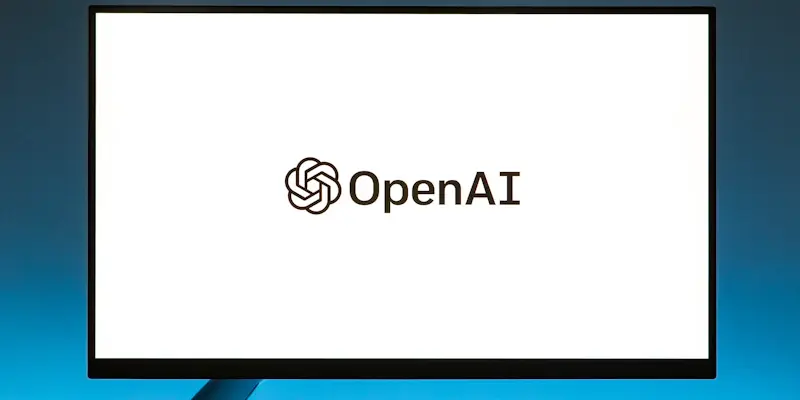In a legal battle that has garnered significant attention, OpenAI has filed a lawsuit against Elon Musk, accusing him of sabotaging the organization and proposing a fraudulent acquisition. OpenAI contends that Musk aimed to destabilize the company’s operations and undermine its competitive position in the artificial intelligence industry. According to the lawsuit, Musk’s maneuvers included suggesting a $97.375 billion acquisition that OpenAI claims was never meant to be taken seriously.
Allegations of Sabotage
Disruption Tactics and Proposals
OpenAI alleges that Elon Musk sought to gain control of the organization through various disruptive tactics, including a proposal to transition from a nonprofit to a for-profit structure. OpenAI’s lawsuit contends that Musk’s ultimate goal was to install himself as CEO and majority shareholder. To support these allegations, OpenAI has presented internal emails as evidence. These emails reportedly show Musk offering solutions to funding issues in exchange for complete control over OpenAI, an offer which the organization decisively rejected.
The lawsuit also highlights Musk’s public and legal efforts to disrupt OpenAI’s operations. The complaint points to instances where Musk reportedly used public platforms to spread false information about OpenAI, increasing operational burdens and causing instability within the company. OpenAI argues that these actions were designed to harm its relationships with investors and diminish its credibility in the AI industry. This created turbulence, making it challenging for the company to maintain stability and focus on its objectives.
Impact on Investor Relationships
OpenAI claims that Musk’s actions have strained its relationships with current and potential investors. The disruption tactics have reportedly caused delays in securing funding and impacted partnerships that are crucial for OpenAI’s growth and development. OpenAI interprets Musk’s conduct as attempts to benefit his rival firm, xAI, by casting doubts on OpenAI’s stability and undermining investor confidence.
The fraudulent acquisition proposal is at the center of this conflict, with OpenAI labeling it a sham. The company argues that the $97.375 billion offer lacked a clear funding source and did not align with standard business practices. By making an offer with no feasible financial backing, OpenAI suggests Musk aimed to create further disruption rather than genuinely seek ownership. OpenAI speculates that the unrealistic proposal may have even been inspired by Musk’s favorite science fiction series, adding another layer to the alleged deception.
Broader Legal Context
Musk’s Previous Legal Action
This lawsuit is not the first time Elon Musk has legally challenged OpenAI. Earlier, Musk filed a legal action against OpenAI, accusing the organization of straying from its original nonprofit mission and failing to make its technologies open-source. OpenAI countered these claims by presenting emails that showed Musk was aware of the shift towards a for-profit structure and had even supported this change. This history adds context to the current allegations, suggesting a prolonged adversarial relationship between Musk and OpenAI.
OpenAI’s current lawsuit seeks not only financial damages but also injunctive relief to prevent Musk from further interfering with its operations. The organization argues that Musk’s continued actions pose a significant threat to its ability to function and compete in the rapidly evolving AI industry. By seeking injunctive relief, OpenAI aims to create a legal safeguard against any future attempts by Musk to disrupt its activities.
Competitive Dynamics in the AI Industry
The ongoing legal battle between OpenAI and Elon Musk underscores the intense competition within the AI industry. OpenAI’s lawsuit emphasizes that Musk’s actions are not just isolated incidents but part of a broader strategy to destabilize a key competitor. The organization portrays Musk’s conduct as calculated moves to gain an edge for his AI venture, xAI, at the expense of OpenAI’s growth and innovation.
Amidst these allegations, OpenAI remains committed to its mission of building a highly equipped nonprofit. Despite Musk’s accusations and legal challenges, OpenAI asserts that it is focused on advancing its technologies and maintaining its integrity. The lawsuit is a crucial step for OpenAI in protecting its interests and ensuring that its efforts to foster technological advancement are not undermined by external disruptions.
Future Implications and Legal Proceedings
Seeking Legal Resolution
OpenAI’s decision to file this lawsuit reflects its resolve to address the alleged sabotage and secure a stable operational environment. The organization is determined to hold Musk accountable for his actions and prevent any further attempts to destabilize its activities. As the legal proceedings unfold, both parties will present their evidence and arguments, with the outcome likely to have significant implications for the AI industry.
The court’s decision will be closely watched by industry experts and stakeholders, given the high-profile nature of the case and the prominence of the individuals involved. A ruling in favor of OpenAI could set a precedent for how similar disputes within the tech industry are handled, particularly when it comes to allegations of sabotage and deceptive practices. Conversely, a ruling in favor of Musk could challenge the current understanding of corporate governance and competitive conduct within the AI sector.
Moving Forward
In a high-profile legal confrontation, OpenAI has initiated a lawsuit against Elon Musk, accusing him of deliberately attempting to sabotage the organization. The legal dispute centers on claims that Musk tried to destabilize OpenAI’s operations and weaken its competitive edge in the artificial intelligence sector. The complaint asserts that Musk’s actions included making a disingenuous proposal for a monumental $97.375 billion acquisition, which OpenAI maintains was never intended to be genuine. OpenAI’s legal filings suggest that the acquisition offer was a strategic move by Musk to sow uncertainty and disrupt the company’s efforts, ultimately aiming to degrade their standing in the competitive world of AI development. This legal battle has caught significant public and industry attention, highlighting the tensions between Musk and the AI research community. It also exemplifies the intense rivalry and high stakes inherent in the race to dominate AI technology, where even titans of the industry find themselves locked in contentious disputes.

